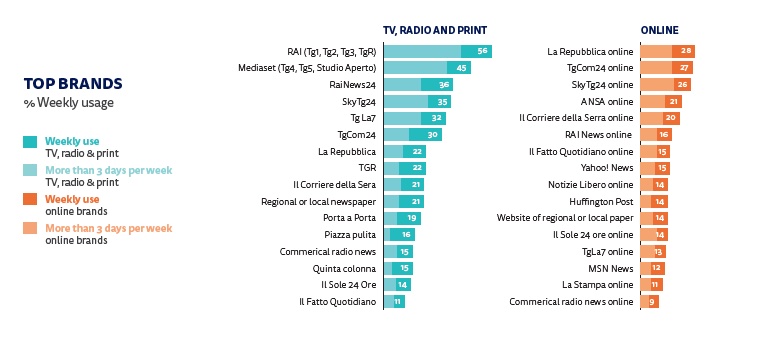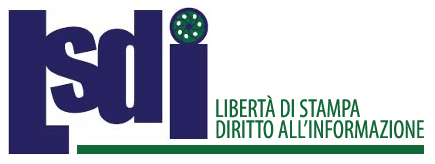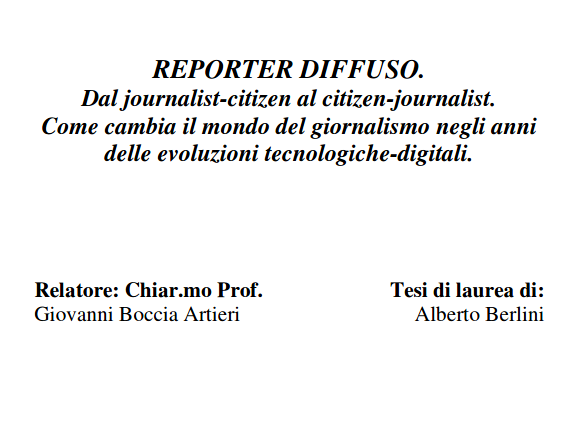
L’informazione digitale nel 2017 secondo Reuters Institute: dominano gli smartphone e l’instant messaging
Secondo l’edizione 2017 del Digital Report del Reuters Institute for the Study of Journalism, cresce sempre più la quantità  di cittadini che si informano attraverso gli smartphone, con le app di messaggistica e i social network.
La situazione in Italia presenta ancora una forte presenza dei media ex analogici traslati sul digitale anche se sono entrati di prepotenza nel mercato i media nativi digitali.
The media environment is characterised by a strong television sector, a weak and declining print sector, and a growing use of internet and social media for news.
The online news market is still dominated by legacy players. The websites with the widest online reach are those of the main newspapers (La Repubblica, Il Corriere della Sera, Il Fatto Quotidiano), the main commercial TV broadcasters (the Mediaset’s TgCom24.it and SkyTg24), and the main news agency (ANSA). The RAI’s news service has slightly increased its online reach, but it still far from matching its extensive reach via radio and television. The public service operator has recently launched a video-on-demand platform, RaiPlay, that is mainly focused on entertainment and has already generated positive audience results. However, the RAI’s plan to reform its news departments and to enhance its digital news service was delayed by internal disagreements. Portals like Yahoo News, Notizie.Libero, and MSN news are still widely used along with a few second-generation digital-born outlets, especially the Huffington Post Italia (which is a joint-enterprise with Gruppo Espresso) and Fanpage (a digital start-up that makes an effective use of social media for distributing its hard and soft news content)
Other digital-born outlets, such as Il Post (5%), Dagospia (5%), CityNews (4%), Linkiesta (3%), Lettera43 (3%), and Blogo (2%), generate limited audience results, as does BuzzFeed News (2%).
Interessante è analizzare i brand italiani nel settore news. in alto le televisioni, i giornali analogici perdono posizioni
 Il rapporto completo
Il rapporto completo



